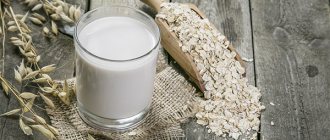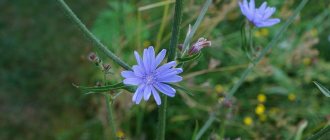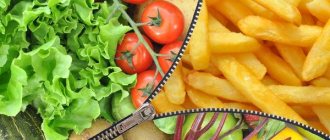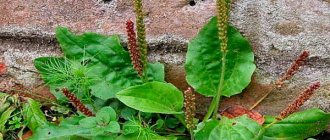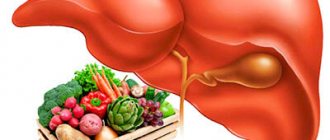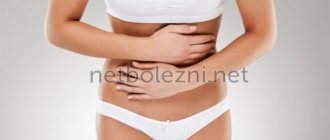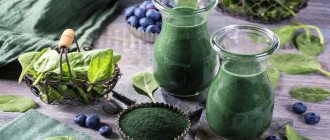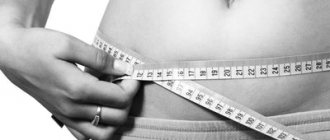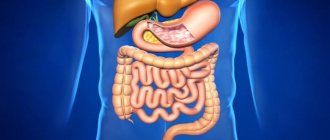Being one of the organic polysaccharides, inulin became widespread at the end of the last century. Its beneficial properties were so varied and so actively advertised that some people even considered it just another dud. However, this is not true; inulin is a truly existing natural substance that can bring many benefits to the body.
Substance inulin
So what is inulin? Inulin is a natural compound - a polysaccharide with favorable microbiological properties. For many years, scientists and researchers have been studying the substance.
After so many years, the extraordinary benefits of inulin have already been scientifically proven, especially for people with diabetes.
The active substance polysaccharide is used:
- In the food industry;
- Pharmacology;
- Cosmetics industry;
- In homeopathy;
- In the production of baby food.
Medical specialists prescribe inulin for diseases such as:
- Gastrointestinal diseases;
- Problems of the cardiovascular system;
- And many other diseases.
At the moment, the use of inulin is quite extensive; the polysaccharide has become especially widespread after scientific research and evidence of its beneficial properties:
- The polysaccharide is a natural “cleaner” for the human body, thanks to which heavy metals and harmful toxins are eliminated without harm or damage.
- Inulin is an excellent prophylactic for preventing bone disease. Systematic consumption of the polysaccharide leads to normal growth and development of bone structure in the body.
- Inulin strengthens the immune system and helps strengthen the musculoskeletal system, especially if you take the polysaccharide along with calcium. It is in this “bundle” that the substance is better absorbed.
- It is important that the microelement has a beneficial effect on the digestive tract and all its organs, ensuring proper functioning of the intestines, protecting and strengthening it. That is why inulin is indispensable for the treatment and prevention of liver diseases and hepatitis. This is ensured thanks to the fortified complex.
What are prebiotics and why are they needed?
The future of many areas in medicine lies in the study of human microbiota. That part of the microbiota that lives in the intestines is nourished by prebiotics, including our hero.
Microbiota (normal microflora) is a collection of microorganisms in the human body. It affects directly or indirectly all (!) systems and organs. Life is impossible without the active participation of bacteria - just like without air, water, food and gravity.
People as a “host species” are not critical for the existence of bacteria, but bacteria are obligatory companions of humans. Therefore, numerous studies in the most modern laboratories are aimed at studying the connection and algorithm of interaction between “a person and his microbiota.”
More than 10 thousand species of microbes inhabit the intestines. Of these, 62% are poorly studied, of which 99% are poorly or not cultivated at all.
3-5% of our weight is bacteria inhabiting the body. Do you weigh 65 kg? The bacteria in your body is from 2 to 3.25 kg.
Only by the age of 7 is a stable structure of the human microflora created. Throughout our lives, the quality and balance of microflora depends very much on nutrition.
Thus, those key systems that rely on intestinal bacteria also directly depend on nutrition. First of all, immunity (up to 70% of immune reserves are determined by the intestinal microbiota). As well as all types of metabolism, absorption of nutrients, synthesis of vitamins and target compounds, among which there are active anti-cancer molecules.
How to maintain harmony of friendly microflora?
Create conditions with proper nutrition and replenish the diet with special substances - prebiotics.
These are nutrients that are not absorbed in the upper parts of the digestive tract, but reach the intestines unchanged and create conditions there for the growth and activity of beneficial bacteria.
Properties of inulin for weight loss
Inulin is able to completely imitate the presence of fat in foods, thereby not changing the taste, but significantly reducing calorie content. In addition, the element has a number of other useful properties.
The use of inulin as one of the components of low-fat products is popular. For weight loss, you should know that 1/4 gram of inulin can easily replace 1 gram of fat for a person.
The use of inulin for weight loss is especially important for people suffering from diabetes. It is this microelement that is an important component in normalizing blood sugar levels and preventing the development of more serious diseases and complications due to diabetes.
Inulin is often used in the manufacture of children's food products, such as dairy products and sweet baked goods. This prevents the development of obesity in children.
What does inulin contain?
Inulin is a storage carbohydrate that can be found in many plant components. There is no inulin in animal products. It is not obtained synthetically either. Thus, it is a natural prebiotic that is not digested by human digestive enzymes and easily enters the intestinal microflora. It is there that it fulfills its main task - it improves peristalsis, as well as digestion, fueling the growth and reproduction of beneficial bifidobacteria.
The industry mainly uses chicory and Jerusalem artichoke inulin. It is these plants that contain the most of this polysaccharide. Its amount reaches 20%, which is a lot. Among the champions in inulin content there are also plants that are more familiar to us - garlic and onions. The share of this valuable component reaches 10%. In addition, they have many other beneficial properties, and therefore you should definitely include them in your diet.
You can also get inulin from other natural products: it is found in cereals, artichokes, raisins and even bananas. All these products are quite tasty and nutritious, and therefore consuming them regularly will not be difficult. And the body will say “thank you” to this. Among medicinal plants, bluebells, violets and lilies can boast of containing pure inulin. It is also found in the tubers of dandelions, daffodils, hyacinths and dahlias.
Benefits and harms
- Inulin can be considered a natural, natural cleanser for the body; this microelement stimulates the natural processes of removing salts, heavy metals, and radionuclides from the human body.
- Systematic use of inulin leads to the restoration and proper growth of bone tissue, replenishes the strength of bones, muscles and cartilage tissue.
The trace element can be considered an excellent preventive measure for bone diseases and musculoskeletal problems. Scientific experiments have proven that systematic use of inulin stimulates the growth of new bone structure. The use of this substance for one calendar year helps to increase bone density in the body by more than 20%. - The benefits of the substance will increase several times if you supplement your inulin intake with vitamins and microelements. The “inulin + calcium” formula is especially useful; it is calcium that reveals the best characteristics of inulin.
- an invaluable contribution to the development and maintenance of the body's performance in older people, especially those who have diseases of the skeletal system.
- Inulin is indispensable for restoring and strengthening the human immune system, but one of the most important advantages of the substance is its beneficial effect on the digestive tract. The uninterrupted operation of a healthy gastrointestinal tract stimulates the development of protective characteristics, strengthening the body’s properties and losing weight.
- Inulin helps restore the liver , so it is prescribed for the development of relevant diseases. It is especially important to take inulin together with vitamin complex “B” and “C”, which together treat hepatitis.
- Inulin, as a dietary supplement, has a positive effect not only on internal organs, it has a beneficial effect on the skin. This has led to the popularity of such a substance as inulin in the field of cosmetology and the production of cosmetic products.
Inulin provides high-quality and effective hydration and nutrition of the skin, as well as:
- Improving the protective characteristics of skin cells;
- Normalization and balancing of oxygen metabolism;
- Active production of natural elastin;
- Complete regeneration of injured tissues;
- Softening of rough layers of skin;
- Elimination of wrinkles and age-related changes;
- Improving and tightening the contour and elasticity of the skin.
Today, the pharmacological and cosmetology industries are producing a number of specialized drugs based on inulin. Testing and development in the use of inulin continues every day.
It is currently actively used in hair care products.
A dietary supplement such as inulin promotes high-quality hydration and nutrition of the hair roots, to the very ends. The active substance stimulates hair restoration and prevents split ends. Systematic use of preparations with inulin stimulates the growth of silky and lush curls.
To date, scientists have not found any contraindications to the use of inulin, so it cannot harm the body. However, before use, you should definitely consult with a specialist in order to determine the individual characteristics of intolerance.
Taking inulin is especially dangerous if a person is allergic to prebiotics; in this case, the substance is categorically not recommended for use in cosmetics and cosmetology.
Inulin in the fight for immunity
This polysaccharide has a hepatoprotective and immunomodulatory effect on our body. It is no secret that the level of immunity largely depends on the health of the intestines and stomach. If everything is in order with the microflora, metabolic processes proceed easily and quickly, then the endurance of the whole organism increases. Inulin plays a decisive role here - it increases the number of beneficial bacteria (as a natural prebiotic), helps improve lipid metabolism (gets rid of bad cholesterol), and helps absorb minerals and vitamins. It is not surprising that inulin is beneficial for the entire body as a whole, and not just for the gastrointestinal tract. And this benefit is difficult to overestimate.
Instructions
Inulin can be obtained exclusively industrially through cold
one spin. This is the only way to preserve the maximum beneficial properties and trace elements of prebiotics in inulin.
The familiar Jerusalem artichoke or chicory is used as the initial raw material, but it is worth knowing that in chicory the percentage is much higher:
- Initially, the material is crushed;
- Extract the main extraction of inulin;
- Thickening of the resulting mass;
- Inulin precipitation;
- Purification and filtration;
- Drying the resulting component.
The most critical operation of the entire technological route is the extraction of inulin from the original material. The effectiveness of the produced substance directly depends on it.
Production technology
For the production of dietary supplements, plant tubers are used, which contain a high concentration of the component. There are different technologies for obtaining prebiotics. It can be extracted from fresh roots or dry crushed ones, which are kept for a certain time in hot, but not boiling water. Extraction can be carried out in several stages to extract larger amounts of polysaccharides.
Subsequently, the resulting solution (or juice) is purified, filtered and crystallized. After this, the resulting product is purified again, using a different technology. Then the mixture is crystallized again, dried, and ground to a concentrated powder.
They also use the cold-press method, which preserves all the beneficial ingredients.
Application for weight loss
Modern industry today produces a huge variety of biological products that contain inulin.
Indications for using inulin for weight loss include:
- Diabetes mellitus types 1,2;
- Initial stages of obesity;
- Autoimmune system diseases;
- Atherosclerosis, osteochondrosis.
Biological supplements with inulin are indicated for people who are undergoing a recovery process after surgery or the consequences of radiation exposure. Contraindications to the use of biological additives are children under 12 years of age, as well as pregnancy and breastfeeding in women.
The main natural products for use are:
- Chicory with inulin;
- Dietary fiber with inulin;
- Sucralose with inulin.
The maximum content of the probiotic inulin is found in the following natural products:
- Onions – more than 5%;
- Chicory - up to 10%;
- Jerusalem artichoke – up to 15%.
Jerusalem artichoke is also called earthen pear, but besides this, some minor inulin content is observed in herbs and medicinal crops:
- Burdock;
- Elecampane;
- Dandelion, etc.
Today, the most popular and effective way to obtain inulin is to extract extracts from plants and crops. The cold-press method is used in modern production, due to which the product obtained as a result of the activities is completely natural and retains its beneficial substances and properties.
The process of losing weight using inulin occurs due to the treatment of intestinal diseases and normalization of metabolism. In addition, such a natural product strengthens and balances the immune system.
Food inulin - indications for use
For what diseases can you take inulin:
- acute as well as chronic infections of the gastrointestinal tract;
- intestinal dysbiosis;
- gastritis;
- enteritis;
- colitis;
- diabetes;
- weakened immunity, frequent viral diseases.
- erectile disfunction.
Inulin from Jerusalem artichoke
As a rule, you can often find inulin from Jerusalem artichoke on sale.
This drug is obtained by special processing of special varieties of Jerusalem artichoke - selection ones, those that have a fairly high inulin content.
The production technology itself is very gentle, it allows you to preserve the maximum of useful substances in the production of this healing powder!
In addition, the unique innovative technology presents the final product in the most concentrated form.
Jerusalem artichoke is very useful for many acute and chronic diseases.
This unique plant was highly valued back in ancient times.
And in the twentieth century, medical scientists identified the mechanisms of the sugar-lowering and fat-burning effects of Jerusalem artichoke, discovering this unique substance in its composition - inulin!
!!! Modern research has reliably established that Jerusalem artichoke tubers almost do not accumulate nitrates, which are very dangerous and can cause mutations in the cells of the human body, and, as a result, the development of cancer!!!
A study was conducted in which Jerusalem artichoke, radishes and potatoes were grown under exactly the same conditions and using exactly the same amount of “chemicals” - nitrates.
After laboratory studies, very interesting results were discovered and it was found that the nitrate content in Jerusalem artichoke is 4 times less than in potatoes, and 15 times less than in radishes!!!
This experiment forced scientists to continue their search, and here's what else they found out.
It turns out that Jerusalem artichoke has the ability to neutralize toxic substances entering it (in this case, nitrates) and convert them into completely safe compounds!
In my opinion, unique, friends... What do you think?
In addition, Jerusalem artichoke tubers are simply a Health Pantry in terms of vitamin and mineral composition!
Just a huge amount of iron, silicon, zinc, as well as magnesium, potassium, manganese and many other minerals, without which we cannot talk about truly good health and immunity!
Many people already know about the benefits of using Jerusalem artichoke for diabetes, osteoporosis, metabolic disorders, etc.
With such serious problems, Jerusalem artichoke REALLY helps! And thanks to what, do you think? Yes, thanks to the inulin it contains!
What else is useful for inulin from Jerusalem artichoke?
It slows down the absorption of carbohydrates and fats, which is very important for patients with diabetes and for those who want to lose weight.
Inulin, contained in Jerusalem artichoke, restores healthy intestinal microflora and is of great importance for bone health, because it helps to absorb calcium, which comes from food.
In addition, in its very composition, Jerusalem artichoke is a rather “calcium-containing” product. Two in one, friends! Well, isn't this unique?
Contraindications
At the moment, all studies and tests carried out with the substance inulin have not revealed any side effects, contraindications or discomfort.
However, before taking it, you should contact a general practitioner who can recommend the drug; the only limitation to taking it will be individual intolerance and an allergic reaction to prebiotics.
The substance inulin is considered a completely safe and natural product, but in order to avoid unpleasant and uncomfortable situations, it is worth conducting a preliminary consultation.
Even after long-term use, inulin does not cause discomfort or side effects and does not pose a threat to the body. However, if personal intolerance is observed, you should stop taking the product immediately.
Inulin is useful for everyone at any age
Here it is, a small polysaccharide with the modest and inconspicuous name “inulin”. Reviews about it, however, are by no means modest. Still would! This is a truly invaluable substance for our entire body, from the functioning of the gastrointestinal tract to strengthening the immune system and maintaining normal weight. Regular consumption of foods containing sufficient amounts of inulin (cereals, artichokes and asparagus, bananas and raisins, replacing coffee with chicory and potatoes with Jerusalem artichoke) contributes to the overall health of the body and the solution of individual problems in the functioning of certain organs.
It will help young people to always be in good shape, maintain a high level of energy and have a strong immune system. For the elderly, it will be an excellent means of preventing and treating osteochondrosis and will reduce the likelihood of a heart attack. And if in the first case it is enough to obtain this carbohydrate from food, then at a more mature age you should think about additionally taking medications containing inulin. Their price is low and quite affordable even for pensioners. Fortunately, today there is a huge selection of natural products, and even enriched with additional valuable components - dietary fiber, juices and extracts of licorice, eleutherococcus, ginseng, parsley, etc. Maintain the inulin content in the body at the proper level and be healthy.
Where can I buy?
Inulin is a substance that is the main supplement of many
many medications, it can also be bought in pharmacies and special homeopathic centers. Inulin is added to baby food so that the baby develops excellent digestion from an early age, to prevent stomach diseases, colic, etc.
Many drugs for diabetics use inulin as a basis for the production of products. But at the same time, it is worth understanding that inulin in no case replaces the main drug, insulin.
The polysaccharide, which is the basis of inulin, is especially recommended for use by people prone to or suffering from intestinal diseases and acute forms of stomach diseases, as well as in pharmacies there are many inulin-based products intended for use when:
- Dysbacteriosis;
- Bone diseases;
- Diseases of muscle or cartilage tissue;
- Hepatitis;
- Gastritis, ulcers.
The product is often prescribed by specialists to strengthen the immune system and as a main element in the prevention of colds.
Where it is contained: main sources
The main products in which the polysaccharide is found are Jerusalem artichoke and chicory. Their tubers contain a higher content of useful substances than all other plants. But these are not the only sources of prebiotics. It is found in the following products, although in smaller quantities:
- garlic;
- leek and regular onion;
- dandelion and burdock roots;
- tubers of flowers - dahlia, hyacinth, etc.;
- rye and barley;
- bananas;
- artichoke and asparagus.
| Plant name | Inulin content (per 100 grams of product) |
| Chicory root | 36-48 grams |
| Jerusalem artichoke | 16-20 grams |
| Garlic | 10-16 grams |
| Jimoka | 10-13 grams |
| Onion | 1-8 grams |
| Asparagus | 2-3 grams |
A significant range of beneficial properties of inulin has led to the fact that this prebiotic fiber is artificially included in baby food and a wide range of products (protein and grain nutrition bars, yogurt, baby cereals, etc.), as well as in medications.
In addition, it is used in cooking, especially for making desserts.
The following forms of inulin are distinguished:
- native inulin (extracted from chicory root);
- highly effective inulin (contains only long chains of fructose molecules, short chains are removed);
- oligofructose (contains exclusively short chains);
- fructooligosaccharides (contains short chains of fructose molecules that are made from table sugar).
The following pharmaceutical preparations can be distinguished: “Zdravolin”, “Inulin-Forte”, “Fitosil”, “Inulin-Nutrimed”, “Zdravomed”.
Inulin is found in common foods, as well as in a number of medications that can serve as an excellent replacement.
- Chicory
- Sweet potato
- Jerusalem artichoke
- Yacon root
- Wheat
- Onion
- Bananas
- Garlic
- Asparagus (asparagus)
- Agave
- Jicama
- Artichoke
- Yam
- Burdock root
- Dandelion root
- Echinacea.
Products
The largest amount of inulin is found in the fruits of Jerusalem artichoke (earthen pear). This polysaccharide is also extracted from the following plants:
- garlic;
- onion;
- chicory root;
- jicama;
- asparagus;
- elecampane;
- burdock;
- dandelion;
- yacon root;
- bananas;
- rye and barley.
- Inulin Forte. A tablet preparation consisting of dry Jerusalem artichoke powder and wheat bran. Stimulates metabolism, promotes a feeling of fullness during meals, cleanses the body of toxins, improves the functioning of the heart and gastrointestinal tract. The effect is due to the fiber, pectin, vitamins B1, B2, C, amino acids, fats and elements included in the composition (iron, copper, manganese, zinc, calcium, silicon).
- Gynosteminin. The drug includes inulin, powder extract from the gynostemma plant, carotenoids, trace elements zinc, calcium, magnesium and selenium, as well as saponins. Taking the product normalizes the functioning of the cardiovascular, nervous, digestive and reproductive systems, and stimulates the immune system. Indicated for patients with increased body weight, diabetes, lipid metabolism disorders, who endure frequent stressful situations, and who have a predisposition to the formation of malignant tumors.
- Ortho Prebio. Contains acacia resin and oligofructose, due to which the drug has a sweetish taste. It can be added to baking dough, porridge, and drinks. Indicated for skin diseases, gastrointestinal pathologies, reduced immunity, stress, diseases of the ENT organs, allergies and intestinal disorders after long-term use of antibiotics. Activates metabolic processes, increases the effect of simultaneous intake of probiotics, eliminates the consequences of intestinal infections, and serves as a means of preventing inflammatory processes in all parts of the gastrointestinal tract.
Prebiotics in baby food
Intestinal microflora plays a primary role in the correct ontogenesis of a newborn child.
The first bacteria enter the child's body when passing through the mother's birth canal. However, dense colonization of the intestinal flora occurs during the first breastfeeding of the baby. The main representatives of the microflora of babies are lactobacilli, bifidobacteria, clostridia, enterobacteria, and gram-positive cocci. In addition to probiotic strains, breast milk contains “food” for bacteria (oligosaccharides). Moreover, a liter of mother concentrate contains 1.5 grams of prebiotic substances. Receiving the necessary “feeding”, beneficial colonies of bacteria multiply, and harmful ones die.
If the baby is bottle-fed, the flora of the newborn suffers (there is a meager concentration of beneficial microorganisms in the intestinal tract). Such children often experience gastrointestinal disorders (dysbacteriosis, constipation, colic, gas formation), infectious infestations, and food allergies. To prevent the occurrence of these problems, infant formula is enriched with prebiotic components.
Popular complementary foods for children containing oligosaccharides:
- Milk formula “Humana 3 with apple and prebiotics”. The composition is intended for infants from 10 months. The drug does not contain gluten, so it can be used in complementary feeding for children who are intolerant to this component. To prevent the development of anemia and rickets in children, the mixture contains increased concentrations of iron and calcium.
- Baby food "Nenny 1 with prebiotics". This is a concentrate for newborn babies (0 - 6 months) on artificial or mixed feeding. The mixture contains goat milk powder, nucleotides, polyunsaturated lipids (omega-3, omega-6), prebiotic substances (oligofructose, inulin), amino acid complex (taurine, tryptophan, carnitine). It is advisable to use complementary foods for feeding babies with underweight, food allergies, or intolerance to cow or soy protein.
- Dairy-free buckwheat porridge with prebiotics from Bebi Premium. The mixture does not contain allergenic substances (gluten, sugar, milk), so it is ideal for the first feeding of a child (from 4 months). The product contains buckwheat, inulin, B vitamins, tocopherol, retinol, cholecalciferol, ascorbic acid, iodine and iron. It is advisable to give buckwheat composition to babies with lactase deficiency, allergic reactions, constipation, and intestinal dysfunctions.
- Humana Bifidus milk formula enriched with prebiotics. This food is used for the prevention and treatment of digestive disorders in children (dysbacteriosis, gas formation, constipation, colic). The product is suitable for complementary feeding of infants from birth to 12 months. The mixture contains compounds necessary for the baby: plant fibers, proteins, carbohydrates, vitamins, microelements, prebiotics, amino acids.
Rules of use and dosage
As previously mentioned, inulin comes in the form of a powder and is a dietary supplement. It is also available in tablet and crystal form. It is important to understand that dietary supplements are not a medicine and cannot cure ailments on their own. There are approximately 110 calories in 100 grams of inulin.
Indications for starting the course are:
- dysbacteriosis,
- atherosclerosis,
- diabetes,
- cholecystitis,
- chronic hepatitis,
- lipid metabolism disorder,
Or taken as a prophylactic against colon cancer.
This remedy should be taken in courses. During the course you need to drink three packages of the drug. There should be a break of two months between courses. It is taken three times a day, two tablets at a time. If you have a powder drug, then take one teaspoon three times a day before meals.
In the case of crystals and powder, you can use water to dissolve and drink as a drink. Water can be replaced with juice, tea without sugar or kefir.
It is important to strictly adhere to the dosage and not deviate from it under any circumstances, except for the occurrence of side effects.
